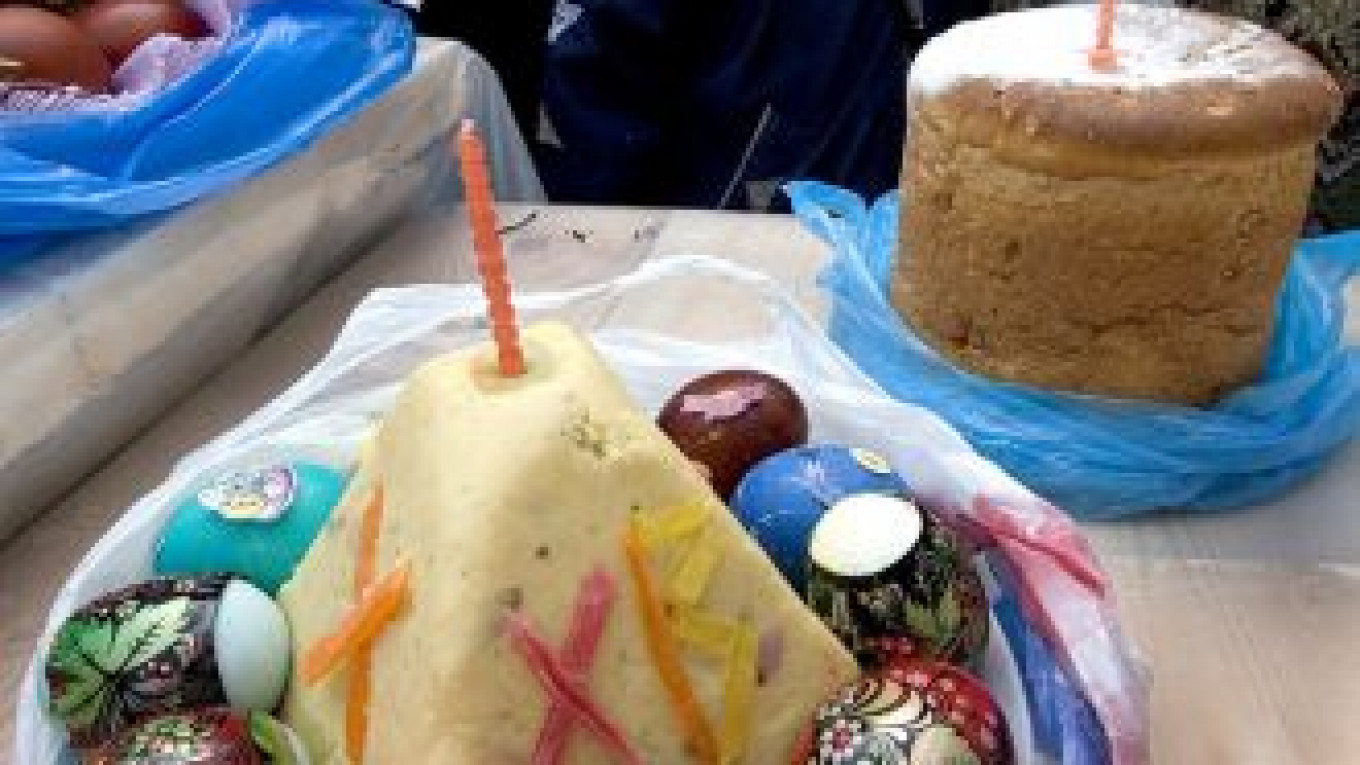More than 1 million tons of Kulichi, or sweet Easter bread, and about 90 million eggs will be sold in Moscow during the week before Easter on May 5, a senior city official said Monday.
Alexei Nemeryuk, head of City Hall's trade and services department, said 70 percent of the city's 12 million people would celebrate Easter on Sunday.
"Kulichi in the capital's shops can be purchased at prices ranging from 50 to 500 rubles," Nemeryuk said, according to Interfax. "In the elite retail chains, there are more expensive cakes, from 1,000 to 1,500." The price range is from just under $2 to about $50 per cake.
No significant increase in the price of eggs is expected because of high competition among egg producers in Moscow, he said.
City officials are also taking measures to ensure safety during the celebrations and will ban the sale of all alcoholic beverages in areas where Easter events will be held.
More than 1,500 police officers will be on duty near major transportation hubs and cemeteries in the capital, with traffic police guarding each Russian Orthodox church from 4 p.m. Saturday until Sunday afternoon.
"Parking will be prohibited within a radius of 50 meters around the churches," traffic police deputy chief Vladimir Tomchak told Interfax. :We will evacuate vehicles as part of anti-terrorism security measures."
He added that private vehicles will be banned from the grounds of cemeteries on Sunday.
Orthodox Christians celebrate the resurrection of Christ after seven weeks of Lent, which began this year on March 18. According to tradition, worship services will be held in all Orthodox churches from the afternoon of May 4 through May 5. Orthodox believers mark Easter under the Julian calendar, which this year falls five weeks later than the Western world.
A Message from The Moscow Times:
Dear readers,
We are facing unprecedented challenges. Russia's Prosecutor General's Office has designated The Moscow Times as an "undesirable" organization, criminalizing our work and putting our staff at risk of prosecution. This follows our earlier unjust labeling as a "foreign agent."
These actions are direct attempts to silence independent journalism in Russia. The authorities claim our work "discredits the decisions of the Russian leadership." We see things differently: we strive to provide accurate, unbiased reporting on Russia.
We, the journalists of The Moscow Times, refuse to be silenced. But to continue our work, we need your help.
Your support, no matter how small, makes a world of difference. If you can, please support us monthly starting from just $2. It's quick to set up, and every contribution makes a significant impact.
By supporting The Moscow Times, you're defending open, independent journalism in the face of repression. Thank you for standing with us.
Remind me later.






